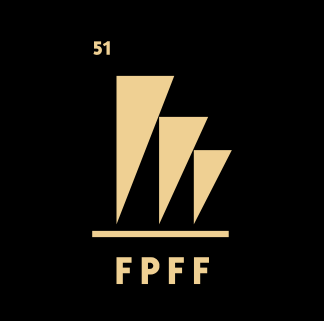Sławomir Idziak
Born 25th January 1945 in Katowice. Graduate from the Direction of Photography and TV Production Department of the Lodz Film School (1969). Director of photography, director and screenwriter. Already as a student, Idziak won the 1st prize for the film “Exit” at the school short film festival (1966). Debuted in Studio Małych Form Filmowych “Semafor” in Lodz. Co-worked with the best directors in (i.a. Krzysztof Zanussi, Krzysztof Kieślowski, Andrzej Wajda, Janusz Zaorski, Jerzy Domaradzki) and abroad (John Duigan, Detlev Buck, Deborah Warner, Taylor Hackford, Michael Winterbottom, Ridley Scott, Antoine Fuqua). Director of “Paper Bird” (TV film, 1972; the Golden Goats at the International Children Film Festival in Poznan, 1973), “Flying Lessons” (1978; the Andrzej Munk Award; the Special Prize for an innovative form at the International Children Film Festival in Poznan, 1979), “A Performance” (1978; the award for the production team; The Journalists Award at the Festiwal Polskiej Twórczości Telewizyjnej, 1979; the Golden Camera Award given by “Film” magazine), “Bajki na dobranoc” (TV film, 1980), “Enak” (1992; the President of Radio and Television Committee Award). Light engineer for the theatrical plays directed abroad by Krzysztof Zanussi: “Rzeźnia” by Sławomir Mrożek (Milan, 1982), “Job” by Karol Wojtyła (San Miniato, 1985) and “Julius Caesar” by William Shakespeare (Verona, 1986). Winner of the Polish Film Award Eagle – the Special Prize for the Excellence in Direction of Photography (2001), the Kamera award for the outstanding director of photography given by the Philipps-Universitat in Marburg (Germany, 2004) as well as numerous awards for cinematography, including the Oscar® nomination for the “Black Hawk Down”.
Selected filmography:
1969: Travellers Like Others; 1970: Silent Night, Holy Night; Mountains at Dusk; 1971: You Can Still Hear the Singing and the Neighing of the Horses; Pyjamas; 1973: Tak bardzo zmęczeni (TV series Directed by Wojciech Marczewski, the award for the cinematography in a TV film); The Underground Passage; 1974: A Woman’s Decision; 1975: Partita for a Wooden Instrument (the award for the cinematography at the 3rd Polish Film Festival in Gdansk); 1976: The Scar; A Short Trip; 1977: Comeback; 1979: The Orchestra Conductor; 1980: Constans; The Contrast; 1981: From a Far Country: Pope John Paul II (Da un paese lontano: Giovanni Paolo II); The Temptation (Versuchung); 1982: Imperative (Imperativ); The Unapproachable (Die Unerreichbare); 1983: Bluebeard (Blaubart); 1984: A Year of the Quiet Sun; 1987: Erloeschene Zeiten; A Short Film About Killing (the Chairman of Cinematography Committee Award); 1988: The Ten Commandments. Five; Wherever You Are; 1989: Inventory; 1990: Long Conversation with a Bird (Das lange Gespraech mit dem Vogel); 1991: The Double Life of Veronique; 1993: Three Colours: Blue (the award for the cinematography at the Venice Biennale; nominated to: the Oscar® – the award of the Academy of Motion Picture Arts and Sciences, the Cesar Award of the Academie des Arts et Techniques du Cinema and the BAFTA Award of the British Academy of Film and Television Arts); Weltmeister; 1995: Lilian’s Story; The Journey of August King; 1996: Jailbirds (Maennerpension); Tar ur steini; 1997: Commandments; Gattaca; Men With Guns; 1998: I Want You (the award for the cinematography at the 48th Berlin International Film Festival); Love and Rage; 1999: The Last September; 2000: Liebesluder; Paranoid; Proof of Life; 2002: Black Hawk Down (nomination for the Oscar® and the BAFTA Award); 2004: King Arthur

